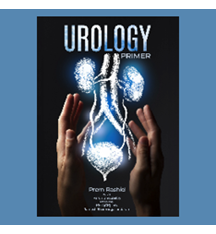2023 | Volume 24 | Issue 4

Author: Professor Spencer Beasley
Few of us would consider ourselves racist, and many would be horrified and highly offended if anyone suggested we had said or done something that has caused racial offence.
It is likely that most surgeons would claim that they were never deliberately racist. But as we gain better insight into some of the more subtle forms of racial prejudice and institutional racism, we might be prepared to acknowledge that all people, including ourselves, do have some racist tendencies, even if some conceal them better than others.
Most of us harbour implicit bias unintentionally. If you are not convinced, you can measure your unconscious bias at Harvard Implicit Bias. So perhaps after all, many of us are guilty of racist tendencies, even if we do not realise it.
What would we do if someone raised a specific concern that we had said or done something perceived to be racist to others? How would we respond if someone accused us of being racist?
For most of us, this would be highly confronting. Our first instinct might be to deny it or to challenge it. Yet, deep down, if we are honest with ourselves, we might harbour a discomfort that there was an element of truth to the accusation. This then raises the question: How should we best respond? For many, our instinct is to respond in an instinctively defensive manner. But our best response may be first to pause and take a deep breath. This gives us time to listen and understand and reflect on what the actual concern really is. How was our comment perceived? Why did it cause offence? Put yourself in the shoes of the person affected and try to understand it from their perspective.
The next thing to consider is: What should I do from here? In most situations a genuine apology is the best way to minimise the adverse consequences of the event. It also shows that you have considered and understood the effects of what you have said or done. While we acknowledge that this can be highly challenging and difficult to do in some circumstances, generally speaking, sincere and genuine remorse is a powerful healer for both parties.
If this response is not tenable for some reason, the next step might be to talk to someone who you can trust. This could be one of the surgical advisors for RACS, for example. They may be able to help you learn constructively from what has happened and assist you in repairing any damage that occurred (including to relationships). RACS surgical advisors are available to speak to all Fellows, Trainees and Specialist International Medical Graduates and can do so confidentially. You can email them here.
If you are feeling anxious or depressed, you may wish to seek psychological support. The RACS Support Program, delivered by Converge International, is a confidential service, which can be accessed here.
RACS has developed a new guidance document, for those who witness or experience racism in the workplace. Should you wish to consider this issue further, additional resources are available here.

